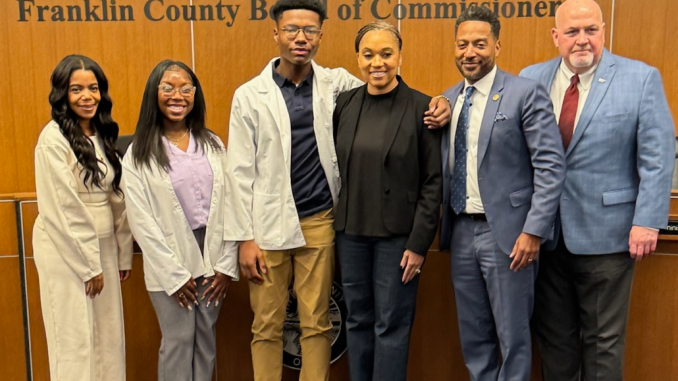
Franklin County, home of Columbus, Ohio, has funneled more than $600,000 to the Made for Medicine program since 2023, the year the Supreme Court banned affirmative action in college admissions. Designed to “increase Black representation in the medical field,” the program provides special courses, labs, and research opportunities to middle and high school students who “identify as African American or Black,” according to a frequently asked questions page.
[snip]
Attorneys who reviewed the program said it likely violates multiple civil rights laws and all but guaranteed legal action amid the government’s crackdown on racial preferences.
Dan Morenoff, executive director of the American Civil Rights Project, told the Washington Free Beacon that it is “perishingly unlikely” that the race-based medical program is constitutional. “If there is a state or local government that is funding a program that is racially exclusive, that is a straightforward 14th Amendment problem,” Morenoff said. He added that the program could also violate Title VI, the law banning race discrimination by the recipients of federal funds, since Franklin County receives money from the government.
[snip]
The program is an affiliate of the Columbus Medical Association, a nonprofit “committed to Inclusion, Diversity, Equity and Access for all.” Franklin County and the Columbus Medical Association did not respond to requests for comment.
The program illustrates the tenacity of racial preferences even one year into the Trump administration, which has launched a scorched-earth campaign against unlawful DEI programs. That campaign has targeted state and local governments as well as private institutions: In March 2025, for example, the Justice Department threatened to sue the state of Illinois over a minority-only scholarship program.
Some institutions have responded to the crackdown by substituting terms like “disadvantaged” for explicit racial criteria. The Made for Medicine program, however, says outright that it excludes non-minorities.
[snip]
![]()
After publication, Made for Medicine updated its FAQ page to simply asks “Who can participate?” though it continued to note that the program was designed to support students “from groups traditionally underrepresented in medicine.” That language was also removed later on Monday. The page now states that Made for Medicine “is open to all students who share an interest in pursuing a career in medicine and advancing health equity.”
The race-based program was touted by an associate admissions dean at the Ohio State University College of Medicine, Demicha Rankin, during a March webinar focused on increasing minority enrollment in medical schools and hosted by Georgetown Law School and the Urban Institute, a left-leaning think tank.
Rankin cited Made for Medicine as an example of the sort of “pathway programs” that could support a “commitment to equity.” She did not mention the program’s race-based criteria, according to a YouTube video of the webinar, which was ostensibly focused on how medical schools could pursue diversity without violating the Supreme Court’s affirmative action ban.
[snip]
“Really lean into who is on the committee,” she said. “Because if there’s representation there, and if there’s broad lived experiences, this can influence the decisions that a committee is making in terms of who is accepted.”
The Ohio State College of Medicine declined to comment.
Update, 9:50 a.m.: This story has been updated to show that the Made for Medicine program changed its FAQ language after publication.
Update, 6:15 p.m.: This story was further updated to reflect an additional change to Made for Medicine’s FAQ page.
* Original Article:


